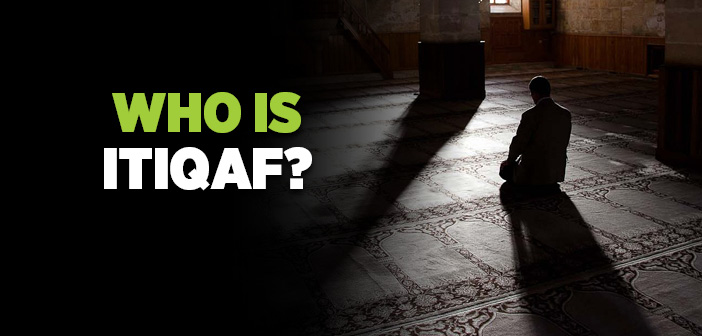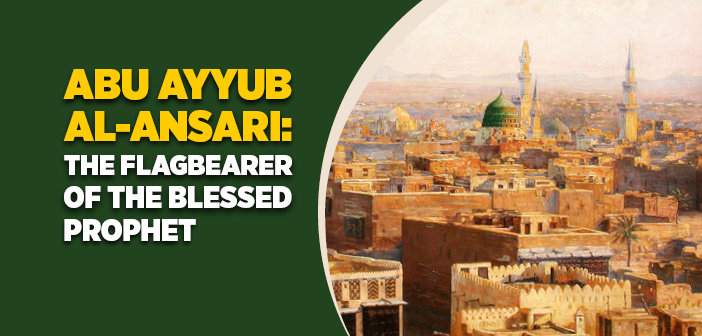What is itiqaf? What are the benefits of itikaf? Why last 10 days of ramadan are important?
Itiqaf literally means to detain oneself and wait in a certain place, as well as to hold fast to and stick by a certain thing. Technically, however, itiqaf denotes staying in a masjid for a specific amount of time, with the intention of gaining closeness to the Allah, glory unto Him. Because of the fact that no time limit has specifically been laid down, a stay of the kind, even if it be merely for an hour, counts as itiqaf, albeit a supererogatory one. Yet, the ayah:
“…but do not associate with your wives while you are in retreat in the mosques…” (al-Baqara, 187), indicates that fasting constitutes a necessary feature of itiqaf, suggesting therefore that the valid period of itiqaf may be no less than a day – and that is the shari itiqaf. Itiqaf has therefore generally been practiced during Ramadan, by virtue of staying inside a mosque in the state of fasting. Itiqaf is hence an immersion in servanthood through fasting during the day and spending the nights in the masjid worshipping and indulging in dhikr.
Itiqaf, as practiced during the final ten days of Ramadan, is a muakkad sunnah, (a strong sunnah that the Blessed Prophet -upon him blessings and peace- very rarely neglected) and at the same time a fard’ul-kifaya (an obligatory deed which, though not compulsory for all, nonetheless requires at least one person in a community to fulfill it, in order for all to become exempt from the responsibility). A vow to enter itiqaf necessitates its fulfillment. Entering itiqaf at times other than the month of Ramadan is recommended (mustahab).
Itiqaf compels one to be careful not to leave the masjid except to see to needs of necessity, like wudu, for instance.
The wives of the Blessed Prophet -upon him blessings and peace- used to enter itiqaf in their own rooms. Tents previously set up inside the Masjid to accommodate them during itiqaf were dismantled with the order of the Prophet -upon him blessings and peace- . Not mosques but their rooms at their homes serve Muslim women as the most appropriate places for itiqaf.
Aisha -Allah be well-pleased with her- says:
“In the final ten days of Ramadan, the Messenger of Allah -upon him blessings and peace- would spend his nights worshipping; he would awaken his family, and commit himself entirely to worship, severing all relation with his wives.” (Bukhari, Fadlu Laylat’il-Qadr, 5; Muslim, Itiqaf, 7)
Again, according to the report of the Aisha -Allah be well-pleased with her-, until breathing his last, the Blessed Prophet -upon him blessings and peace- continued to enter itiqaf in the last ten days of Ramadan, completing that to twenty in his final year. The practice lived on with his wives following his passing away.[1]
The following incident gives a superb indication of the importance and value of entering itiqaf, underlining at the same time the need to be mindful with individual and social duties:
“Ibn Abbas -Allah be well-pleased with him- one day entered the Masjid for itiqaf and greeted another man, assuming a seat on the ground next to him.
‘You look tired and upset, my brother’, said Ibn Abbas.
‘Yes, indeed so, cousin of the Prophet’ he replied. ‘So and so had set me free in return for which I am supposed to pay him a certain amount…but by the right of the man (the Prophet) lying in that grave over there, I cannot pay him back.’
‘Do you want me to have a word to him on your behalf?’ asked Ibn Abbas -Allah be well-pleased with him-.
‘It is up to you’, responded the man. Just as Ibn Abbas -Allah be well-pleased with him- had grabbed his shoes and was making his way out the Masjid, the man called out to him:
‘Did you forget you are in itiqaf?
‘I certainly did not. But let me tell you one thing I heard from the man lying in that grave’ said Ibn Abbas -Allah be well-pleased with him-, with tears trickling from his eyes:
‘Pursuing and sorting out a brother’s need is better than a ten year itiqaf…and if one enters itiqaf for a day only for the pleasure of Allah, Allah creates between him and Hellfire three ditches…and width of each is as much as that between East and West.” (Bayhaki, Shuab’ul-Iman, III, 424-425)
[1] Bukhari, Itikaf, 1, 17; Muslim, Itikaf, 5.
Source: Osman Nuri Topbaş, The Prophet Muhammed Mustafa the Elect II, Erkam Publications





